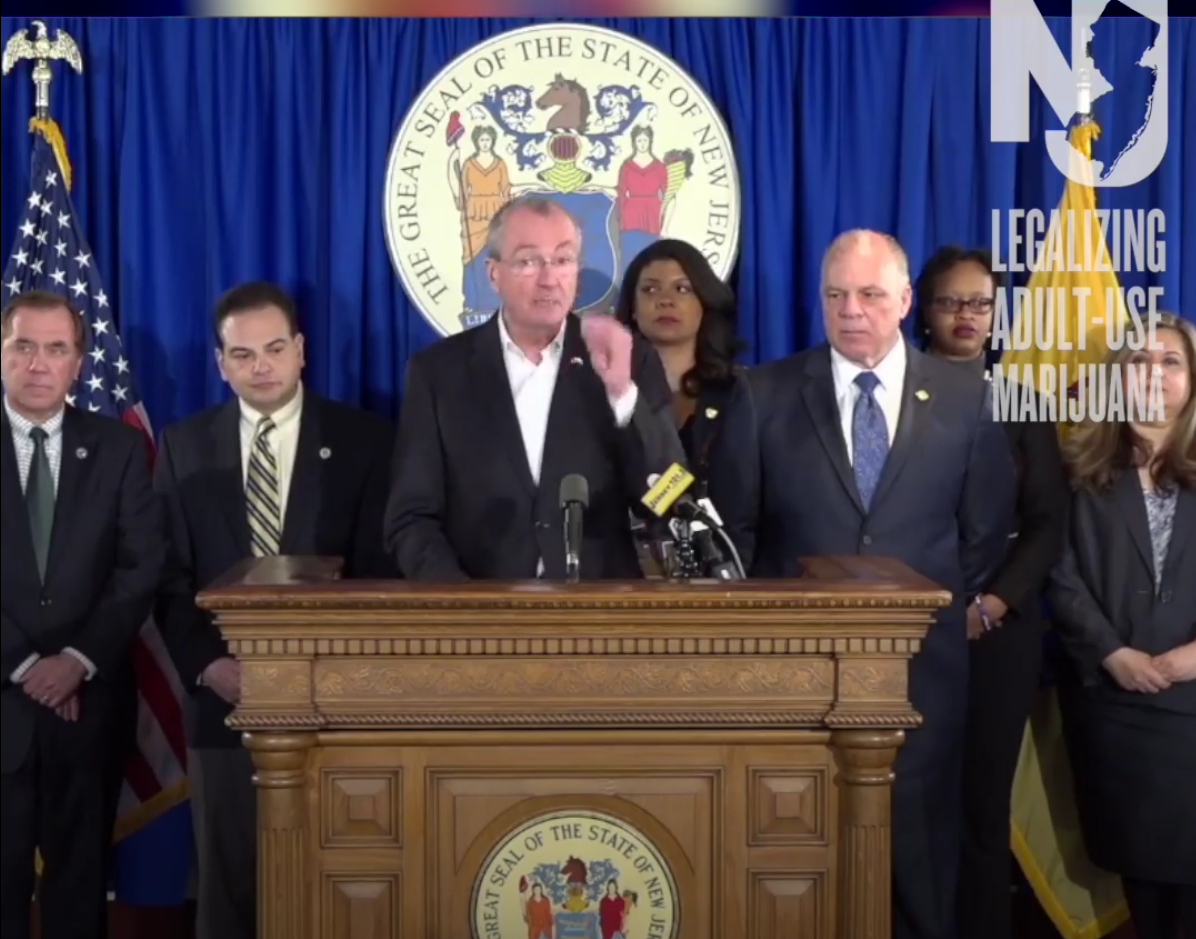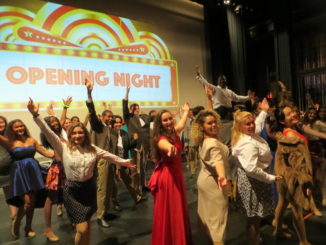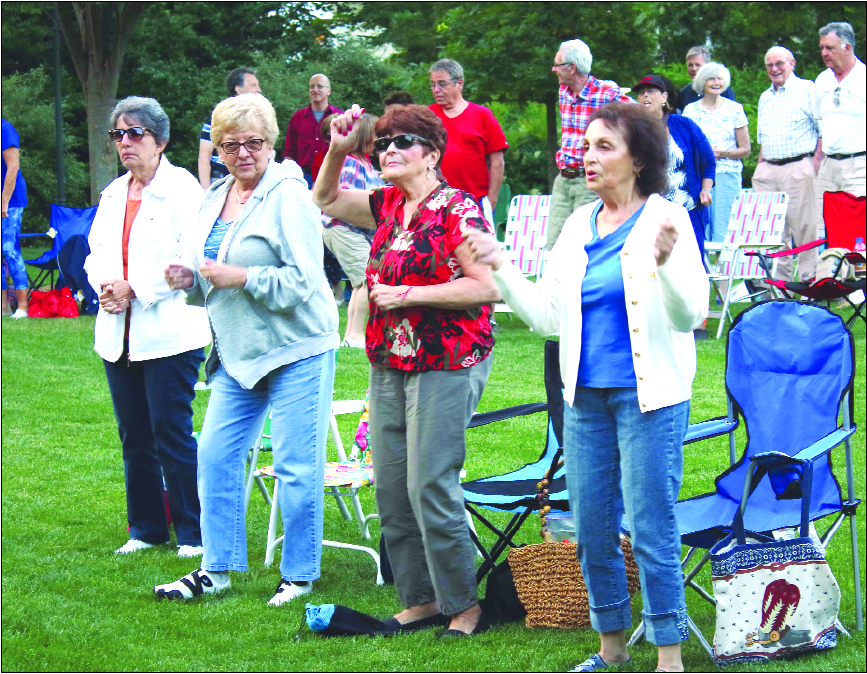
TRENTON—Two bills that passed unanimously in the New Jersey General Assembly in late November may offer a larger chunk of state revenues for arts, tourism and historic preservation if approved by the Senate and signed by Gov. Phil Murphy.
Bill supporters said they hoped the legislation would be posted for a vote on Dec. 16 when the Senate resumes.
Both were approved by unanimous votes on Nov. 25 in the Assembly.
The first measure (A-3101; S-247) sets aside up to $9 million more in state funding for arts and cultural projects, tourism advertising and promotion, and historic preservation from the hotel-motel occupancy fee tax.
According to bill supporters, approval of the bill would significantly increase funding dollars available statewide, sponsors said.
Under current law, the state Tax Division director is required to allocate 22.68 percent of total hotel and motel occupancy fees collected to New Jersey State Council on the Arts for cultural projects, provided that the actual dollar amount allocated is a minimum of $22.68 million.
The bill would increase the minimum dollar amount that the director must allocate for cultural projects to $31.9 million, said bill sponsors.
“The hotel-motel tax concept has been adopted by many states to create a separate stream of revenue for these organizations that were often among the last to receive aid. It has helped stabilize the arts community in many areas and in many ways,” said state Assemblywoman Patricia Egan Jones (D-Camden, Gloucester).
‘More with less’
“This is a community that has always done more with less. We can only imagine the work that can be done for new artists, music education in schools, classes, or providing low-income families access to the arts or historical venues if they received the proper funding,” Jones added.
A Senate vote on the bill may occur Dec. 16 when the Senate reconvenes for a final time in 2019, said legislative observers.
While officials with the state Council on the Arts declined comment on the bill’s prospects, a spokesperson for ArtPride New Jersey, a leading advocate for increased arts funding, said the increased funding will make a huge difference for struggling arts enterprises.
Moreover, the bill carves out extra funds for tourism and historic preservation efforts.
‘Would be good’
Cynthia Forster, director, Bergen County Division of Cultural and Historic Affairs, said the county gets annual state funding that it “regrants” to arts and historic organizations.
“Anything that would add to the current grant funds we’re giving out would be good,” she said, referencing the bill to increase funds coming from the hotel-motel tax.
She said in 2019, Bergen County received slightly over $106,000 in the final year of a three-year arts grant cycle from New Jersey. She said about $86,000 of the funds went to “regrants” to 34 smaller arts organizations in 2019.
“More and more nonprofits keep coming in for grants every year… If we received more money we’d probably have even more groups applying for funds,” she noted.
Moreover, she said of about $60,000 received by Bergen County from the state Historic Commission, about $49,000 went to “regrants” to 15 historical organizations for preservation efforts.
“We should be getting much more than we currently get,” she said, noting the numerous hotels in Bergen County paying into a hotel-motel tax fund.
Forster said the need for more arts and historic funding exists in Bergen County.
Arts funding in decline
Ann Marie Miller, of ArtPride New Jersey, said since a hotel-motel occupancy tax was begun in 2004, the arts community has had a dedicated revenue source for funding but it has declined since its early days.
She said for nearly a decade arts funding via the hotel and motel fees has been below the 22.68 percent required to be allocated.
“Rarely ever have we come close to the amount we’re supposed to get from state funding,” said Miller Dec. 3.
“We hear about need all the time from arts organizations struggling with financial difficulties,” she said. She said she was hopeful the bill increasing funding would be posted for a Senate vote.
“Everybody’s struggling with trying to keep prices affordable and keep price increases to a minimum,” she said of arts organizations statewide who rely on state funds for support, in addition to member and philanthropic support.
Miller said since 2010, state funding for arts, historic preservation and tourism have been below minimum levels set in the original hotel-motel tax legislation passed in 2004.
Miller said state funding “has been frozen at about $16 million” in recent years, and while revenues from the hotel-motel tax keep increasing, more funds were returned to the state general treasury.
Will the bill be posted for vote?
A spokesman for Senate Democrats told Northern Valley Press Dec. 4 that he was not sure if S-247 would be posted for vote Dec. 16 but said it was likely one or two additional Senate voting sessions would be added in early January before the so-called “lame duck” period expires Jan. 14, the day the Senate reconvenes for 2020.
The legislative sessions between Nov. 6 and Jan. 14 are called “lame duck” due to legislators who were defeated on Nov. 5 having a chance to continue to lobby for bills despite their election loss, before being replaced by newly elected members in mid-January.
‘Cheers’ to the arts
In addition to increasing motel-hotel tax funding for the arts, another bill passed 73-0 in the Assembly on Nov. 25 (A-1478; S-1648) to allow small theaters of 50 seats or more to apply for a liquor license to help increase revenues.
Among the bill’s primary sponsors are Assemblywoman Annette Chaparro (D-Hudson) and Assemblywoman Valerie Vainieri Huttle (D-37).
The bill notes as long as admission is charged and the building is primarily used for theater productions, municipalities would be allowed to offer a plenary retail consumption license to such organizations.
Previously, only theaters able to seat 1,000 or more patrons could apply for a “theater license” to serve liquor.
Improving attendance
“Permitting smaller entertainment venues to serve alcohol during productions would help them compete with larger theaters. Increased attendance at these performances would also likely improve patronage at nearby businesses,” said Chaparro in a statement.
“This legislation is a great way to promote the arts throughout the state and support the nonprofit organizations that bring these concerts, musicals and plays to the people of New Jersey,” she added.
Chaparro thanked Mile Square Theatre of Hoboken for raising the issue to her.
“Like any business, local theaters need money to keep their doors open and I hope this legislation provides an additional revenue stream that allows them to worry less about fundraising and focus more on providing great entertainment for New Jersey residents,” said Chaparro.
No information was available on whether Senate President Stephen Sweeney (D-3) would post either of the two bills during “lame duck” sessions.
If bills passed by the Assembly are not posted and voted on by the Senate before Jan. 14, 2020, the bills die and must be reintroduced in the 2020 legislative year.



